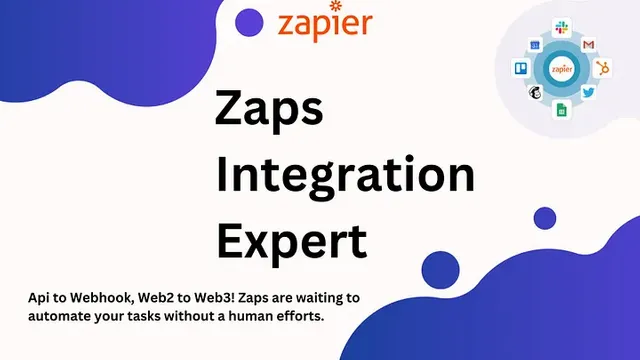Introduction
In the modern workplace, collaboration is key, and productivity suites like Google Workspace (formerly G Suite) and Microsoft 365 (formerly Office 365) are at the forefront of enabling efficient teamwork. However, navigating between these platforms can sometimes create data silos and hinder seamless collaboration. Enter Zapier, the integration platform that can bridge the gap between Google Workspace and Microsoft 365, ensuring data consistency and empowering teams to work together seamlessly. In this blog post, we'll dive into how Zapier can facilitate cross-platform integration, enabling businesses to harness the full potential of both productivity suites.

The Challenge of Platform Duality
Google Workspace and Microsoft 365 are popular productivity suites that offer a suite of tools for communication, document creation, collaboration, and more. But for organizations that use both platforms, managing data across them can be a challenge:
Data Discrepancies: Duplication or inconsistency of data across Google Workspace and Microsoft 365 can lead to confusion and inefficiencies.
Manual Duplication: Manually copying data from one platform to another consumes time and introduces the risk of errors.
Fragmented Collaboration: Teams using different platforms can face obstacles when trying to collaborate seamlessly on projects.
Syncing with Zapier: Unlocking Cross-Platform Collaboration
Contact Synchronization: With Zapier, you can keep your contact lists consistent between Google Workspace and Microsoft 365. When a new contact is added to one platform, Zapier can automatically add it to the other.
Document Sharing: Share documents effortlessly by integrating Google Drive with Microsoft OneDrive. When a new document is added to one platform, Zapier can ensure it's copied to the other, keeping teams on the same page.
Email Management: Integrate Gmail and Outlook to ensure that emails are synchronized. When an email is received in Gmail, a Zap can create a copy in Outlook, and vice versa.
Calendar Integration: Keep your schedules aligned by syncing events between Google Calendar and Outlook Calendar. When a new event is added to one calendar, Zapier can ensure it's mirrored in the other.
Collaboration Alerts: Set up Zaps to alert your team members in the platform they prefer. For example, when a task is assigned in Microsoft Teams, a notification can be sent to the relevant person's Gmail.
Benefits of Zapier Cross-Platform Integration
Efficiency: Automating data synchronization eliminates manual copying and ensures data consistency across platforms.
Collaboration: Teams can collaborate without platform limitations, enhancing productivity and teamwork.
Time Savings: Zapier automates data transfer, freeing up time for more strategic tasks.
Error Reduction: Automation minimizes the risk of data entry errors associated with manual processes.
Visit my Fiverr profile to explore how I can customize automation solutions for your business's success.
Conclusion
Cross-platform integration between Google Workspace and Microsoft 365 is no longer a challenge, thanks to Zapier's powerful capabilities. By seamlessly connecting these productivity suites, Zapier empowers organizations to maintain data consistency, streamline collaboration, and enhance efficiency. Whether it's synchronizing contacts, sharing documents, managing emails, or coordinating calendars, Zapier's automation ensures that teams can work harmoniously across platforms.
As businesses strive for streamlined collaboration and optimal productivity, embracing Zapier as the bridge between Google Workspace and Microsoft 365 is a strategic move. With Zapier, data silos are a thing of the past, and the potential for seamless cross-platform collaboration becomes a reality, driving success and growth in the modern digital workspace.